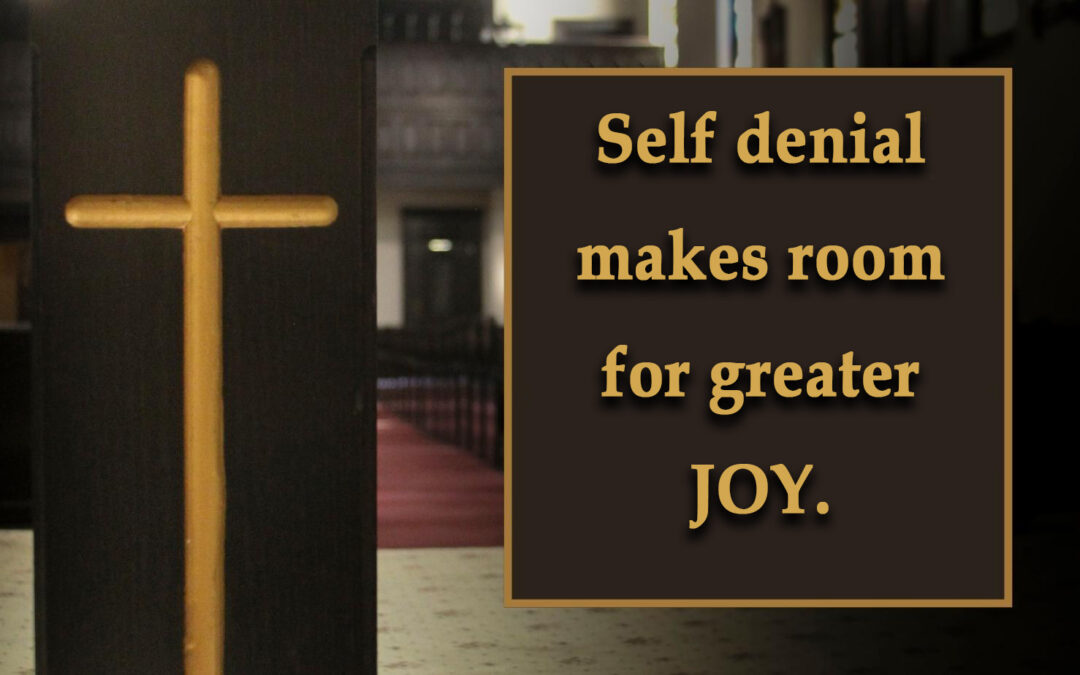Dear Friends,
Lent will be quickly upon us. Wednesday is Ash Wednesday and it begins our Lenten Journey, “The Great Fast” as it was often called. A few years ago, we all experienced a Lent that was forced upon us by the Covid pandemic. We were told to do without for the sake of controlling the spread of the virus. We did without gatherings with friends, eating in restaurants, entertainment beyond our televisions, sporting events, school, and even gathering as church. All of that was forced on us. It was a Lent like no other. Now, we are back to having a Lent where you get to freely choose to join your fellow disciples in a time of going without.
As a penitential season, Lent is marked by fasting, a word which for many is shrouded in mystery. But fasting is an assumed discipline in the bible. “When you fast,” Jesus says, “do not be as the hypocrites.” In Matthew, it says that after he was baptized, “Jesus was led up by the Spirit into the wilderness to be tempted by the devil. And when He had fasted forty days and forty nights, afterward He was hungry.” In Lent, the Church follows the example of Christ, who disciplined himself in the practice of prayer, fasting, and resisting temptation.
We are invited to imitate Christ with greater intensity during Lent and choose not to live simply as people who satisfy their every desire but to live like children of God who can decide how they shall live. Every once in a while, I run into a posting on social media of that famous Stanford experiment. It has such cute videos of children striving to delay gratification. Researchers, wanting to measure it, put hundreds of children between the ages of 4 and 5 to a simple test: they placed a marshmallow on the table in front each child and explained that each can have one now or two later. The researcher would then leave the room for fifteen minutes, and the film footage suggests that for some children those fifteen minutes were not unlike Christ in the desert. Some kids physically covered their eyes with their hands to avoid giving into temptation. Some sang songs and talked to themselves. And some simply yielded to temptation without struggle. After repeated returns to analyze the development of the children tested, what the study ultimately suggested was that the principle of “delayed gratification” correlated to success in many other areas of life later, not to mention contentment and happiness.
While the Church may have appreciated the scientific research’s backing, it has long taught that followers of Jesus are regularly engaged in self-denial. Self-denial is what it takes to do anything well, an essential ingredient of victory in any pursuit. But it also happens to be a special qualification in being a follower of Christ, “If anyone desires to come after Me, let him deny himself, and take up his cross, and follow Me.” Why does Jesus say this? Because he knows that saying “yes” to one thing means saying “no” to other things. We might take the players in the recent Super Bowl as examples of those who gave of themselves in the hopes of winning a championship. How much time was spent in practice and saying no to just enjoying life so that the team could win? How much pain did they endure to win?
The point for Christians is that we were made for God and not for the earth or for ourselves. Because of this, we must learn to discipline our desires. This means learning to say no to things. And saying no to something is not the same as the resignation that comes when a thing is gone. Saying no is actually quite straight forward: a thing is there, you can have it, but you choose not to for a reason. If we have never built up the muscles of self-denial, then how can we expect to resist temptation? If we have never formed habits where we say no to any desire that might wish to be gratified, then the likelihood that we will resist temptation when it comes is very, very low.
The paradox of self-denial is that it makes room in the end for greater joy. What will you choose this Lent? What “no” will yield for you an ever greater “yes”? You have a couple days to decide.
Peace,
Fr. Damian



